Boost.Asio C++ Network Programming Second Edition
Credits
About the Authors
Acknowledgements
About the Reviewers
www.PacktPub.com
Support files, eBooks, discount offers, and more
Why subscribe?
Free access for Packt account holders
Preface
What this book covers
What you need for this book
Who this book is for
Conventions
Reader feedback
Customer support
Downloading the example code
Errata
Piracy
Questions
1. Simplifying Your Network Programming in C++
Setting up the MinGW compiler and Text Editor
Installing MinGW-w64
Setting up the Path environment
Choosing and installing the Text Editor
Using the GCC C++ compiler
Compiling a C++ program
Compiling multiple source files
Compiling and linking a program separately
Detecting a warning in the C++ program
Knowing other important options in the GCC C++ compiler
Troubleshooting in the GCC C++ compiler
Help for command-line options
Version numbers
The verbose compilation
Summary
2. Understanding the Networking Concepts
An introduction to networking systems
The OSI reference model
The Physical layer
The Data Link layer
The Network layer
The Transport layer
The Session layer
The Presentation layer
The Application layer
The TCP/IP reference model
Understanding TCP and UDP
Transmission Control Protocol
User Datagram Protocol
Understanding ports
Exploring the Internet Protocol
Internet Protocol Version 4 – IPv4
Internet Protocol Version 6 – IPv6
Using TCP/IP tools for troubleshooting
The ipconfig command
Displaying the full configuration information
Displaying DNS
Flushing DNS
Renewing the IP address
Releasing the IP address
The ping command
The tracert command
The pathping command
The netstat command
The telnet command
Summary
3. Introducing the Boost C++ Libraries
Introducing the C++ standard template library
Introducing the Boost C++ libraries
Advantages of Boost libraries
Preparing Boost libraries for the MinGW compiler
Downloading Boost libraries
Deploying Boost libraries
Using Boost libraries
Building Boost libraries
Summary
4. Getting Started with Boost.Asio
Getting closer to the Boost.Asio library
Examining the I/O service in the Boost.Asio library
Using and blocking the run() function
Using the non-blocking poll() function
Removing the work object
Dealing with many threads
Understanding the Boost.Bind library
Wrapping a function invocation
Working with the Boost.Bind library
Synchronizing data access with the Boost.Mutex library
Giving some work to the I/O service
Using the post() function
Using the dispatch() function
Summary
5. Delving into the Boost.Asio Library
Serializing the I/O service work
Using the strand function
Wrapping a handler through the strand object
Handling exceptions and errors
Handling an exception
Handling an error
Timing the work execution using the timer class
An expiring timer
Using the timer along with the boost::bind function
Using the timer along with the boost::strand function
Summary
6. Creating a Client-server Application
Establishing a connection
A synchronous client
An asynchronous client
An asynchronous server
Reading and writing to the socket
The Send() and OnSend() functions
The Recv() and OnRecv() functions
Wrapping the network code
Developing a client and server program
Creating a simple echo server
Creating a simple client program
Summary
7. Debugging the Code and Solving the Error
Choosing a debugging tool
Installing a debugging tool
Preparing a file for debugging
Running the program under GDB
Starting the debugging process
The continuing and stepping debugging process
Printing the source code
Setting and deleting the breakpoint
Printing a variable value
Modifying a variable value
Calling the command prompt
Solving the error
What's next?
Summary
Index
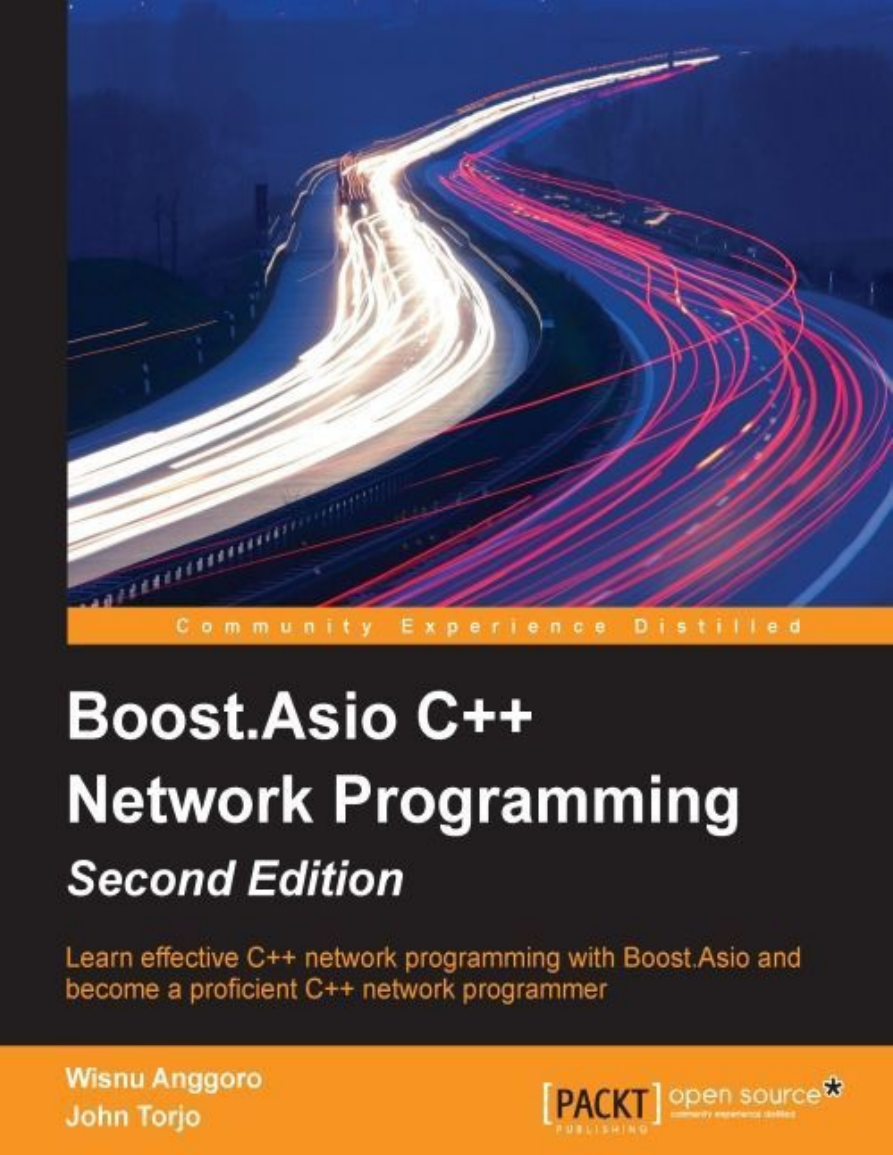
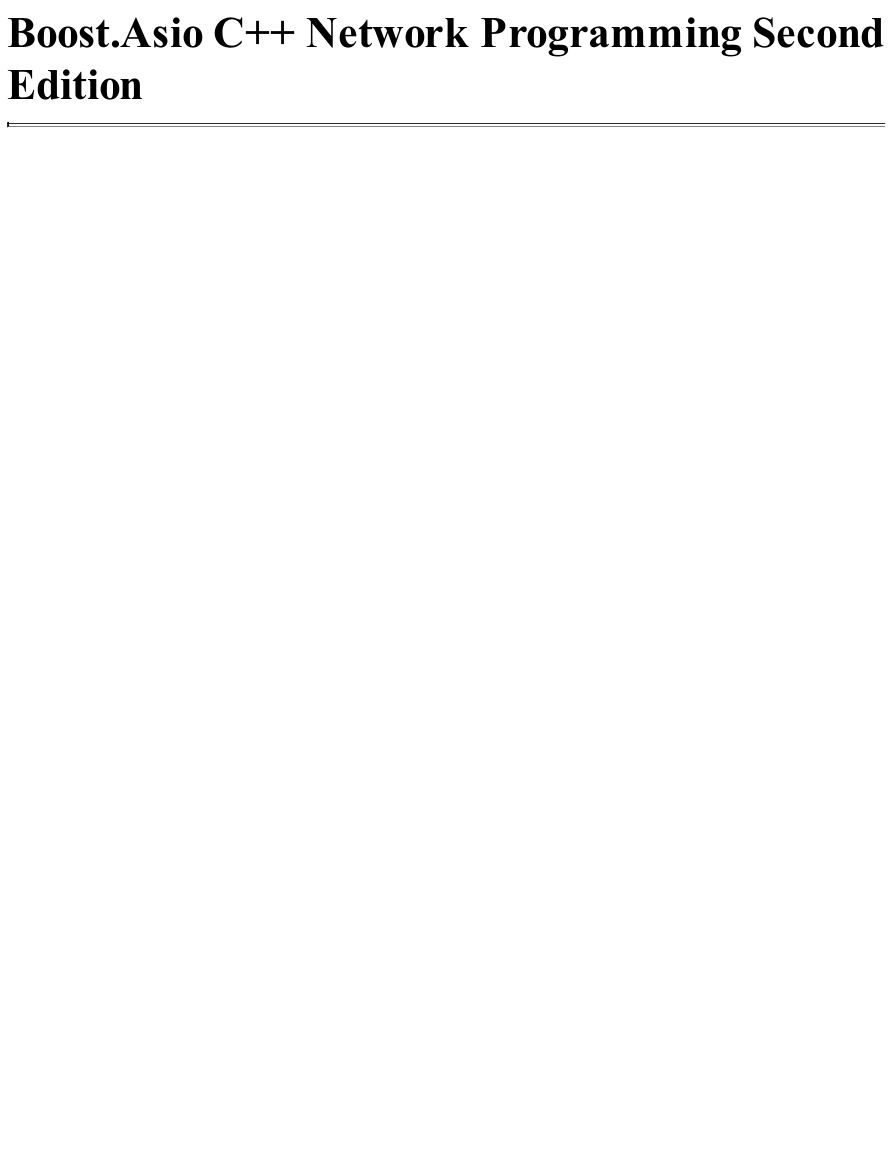
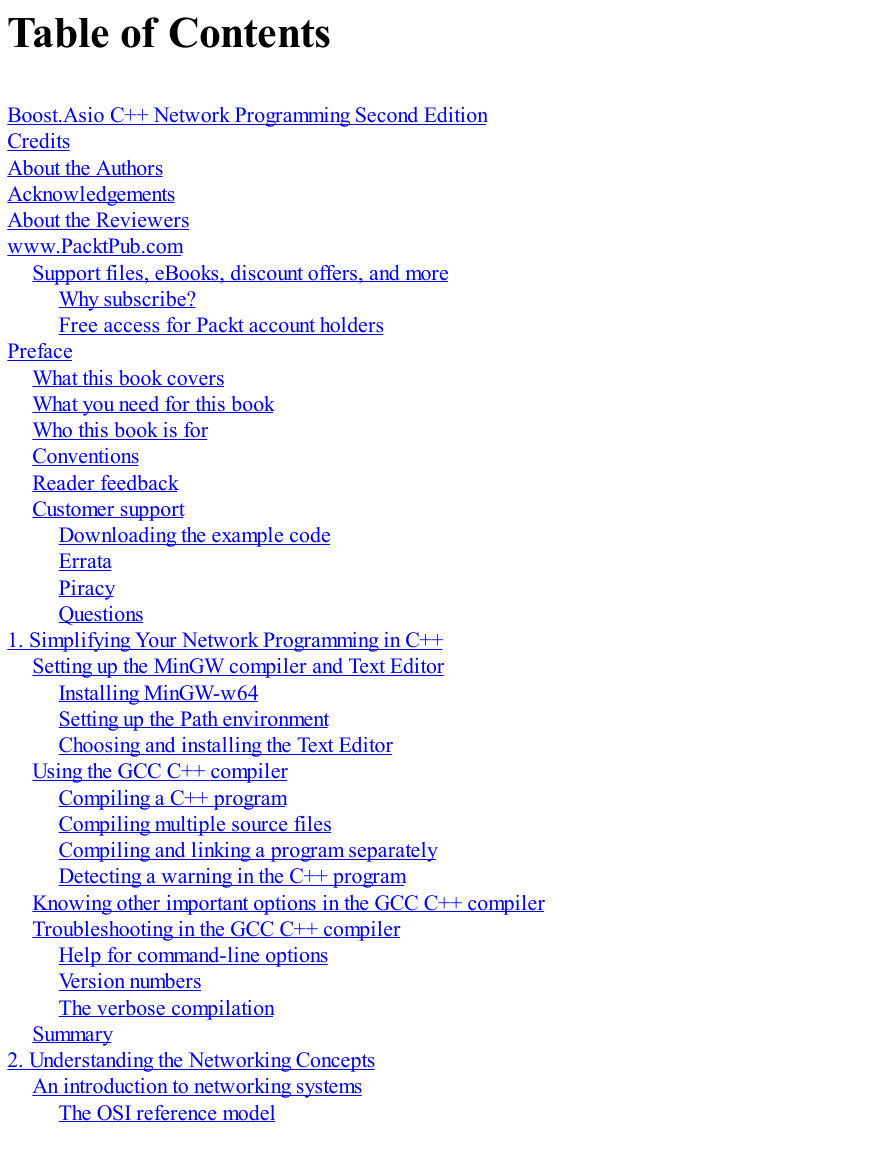
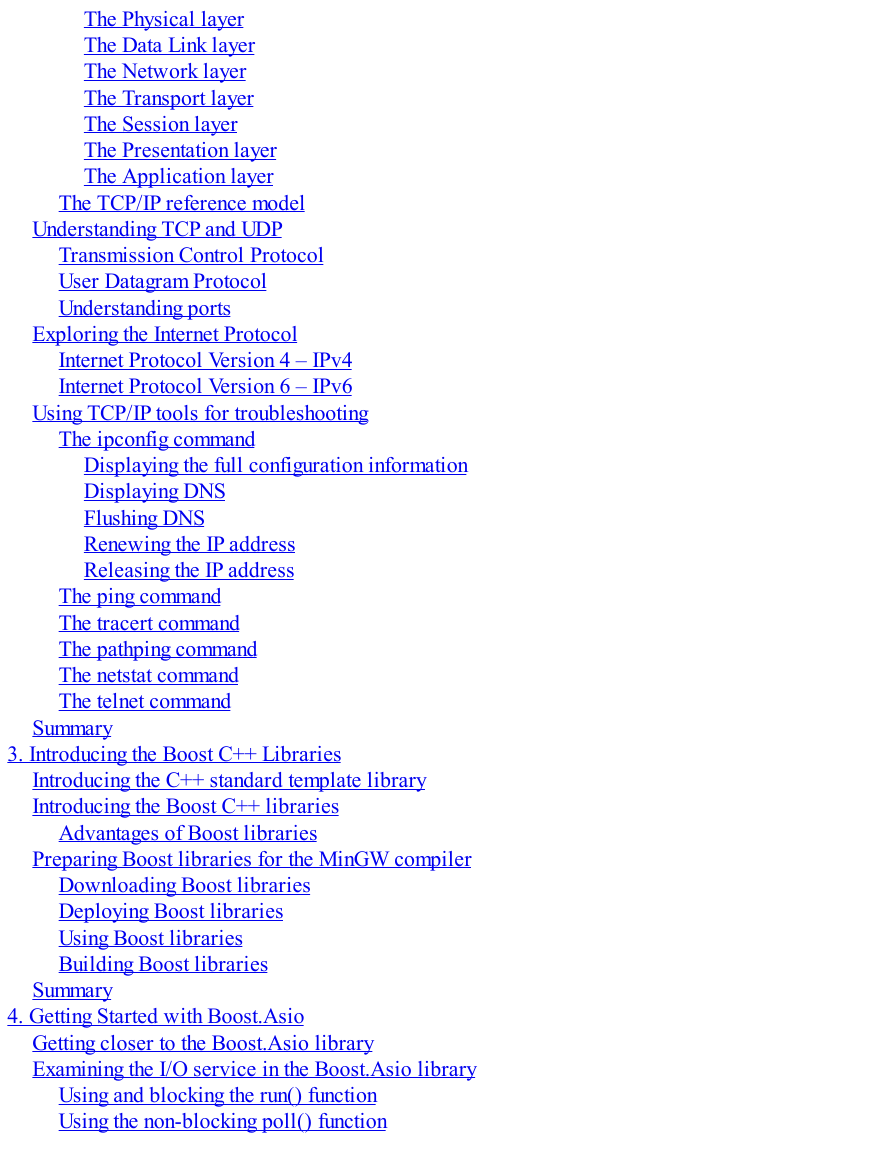
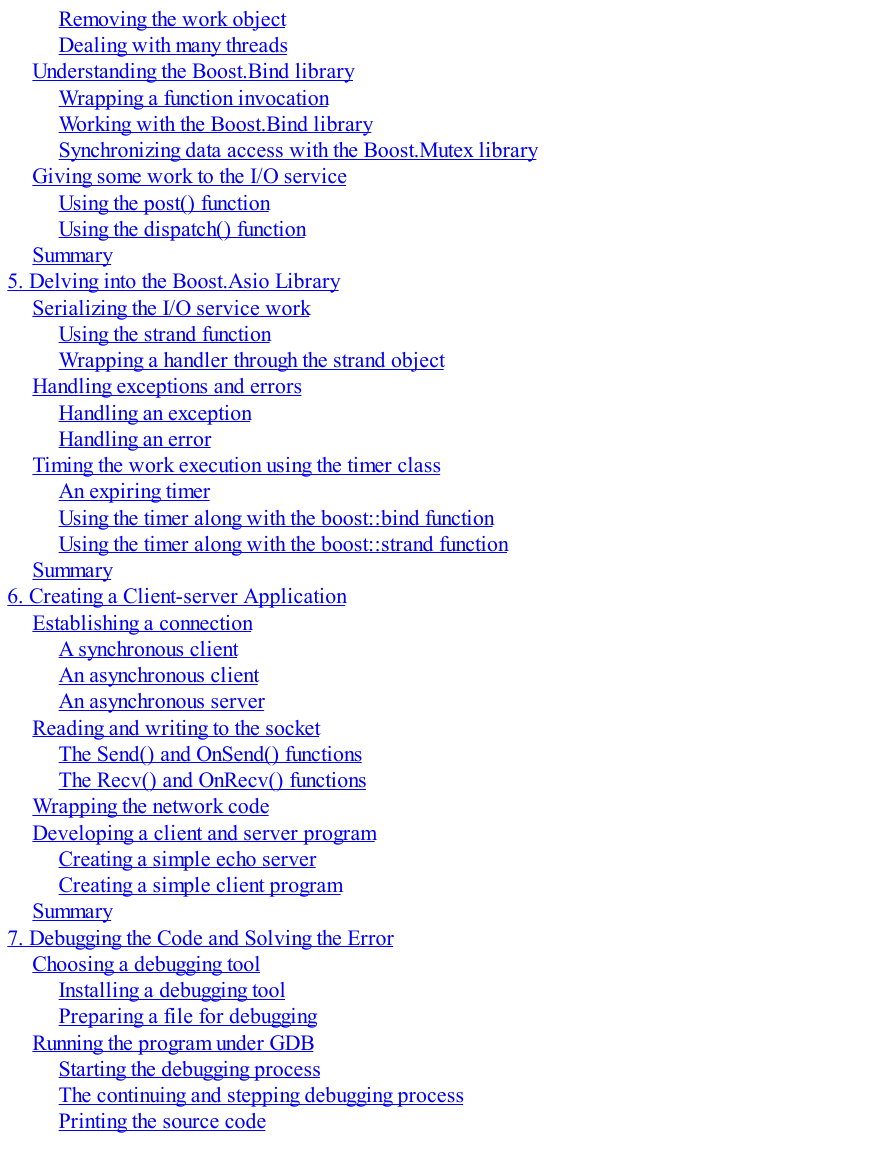

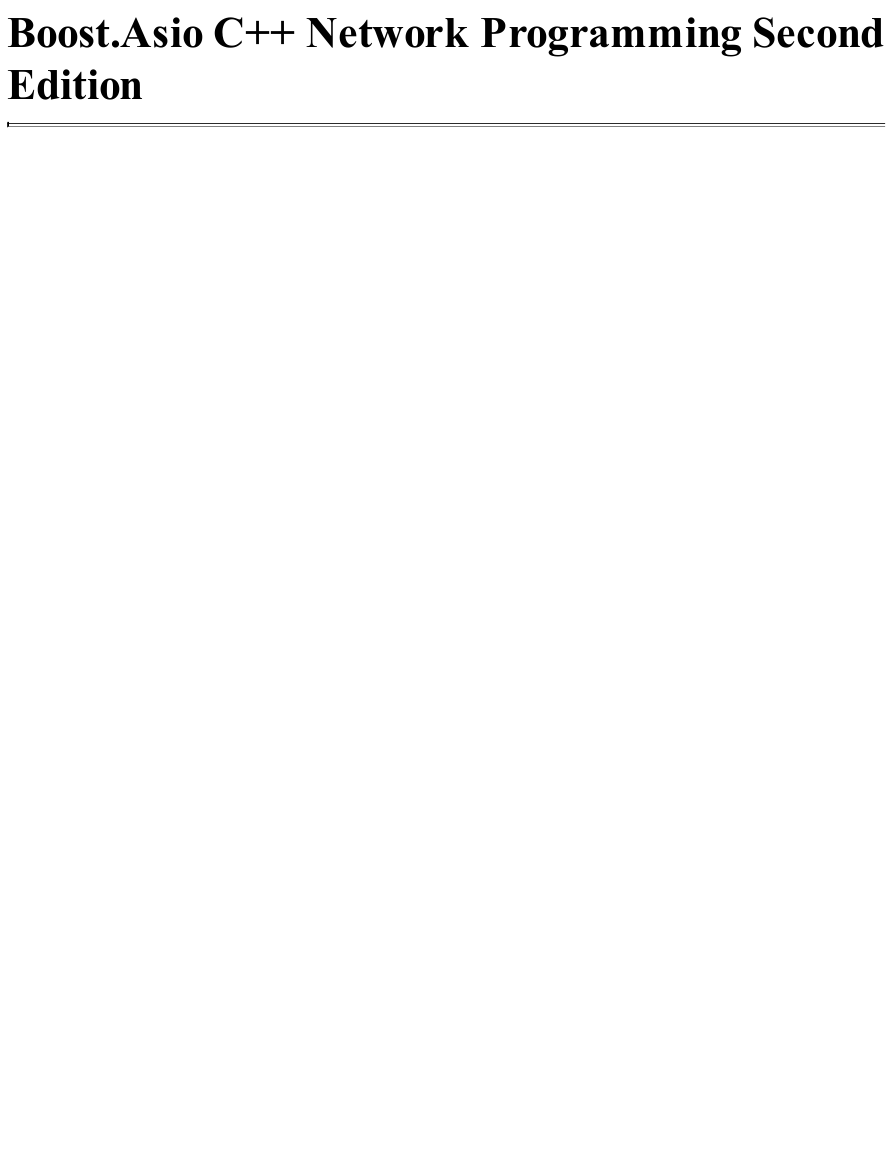
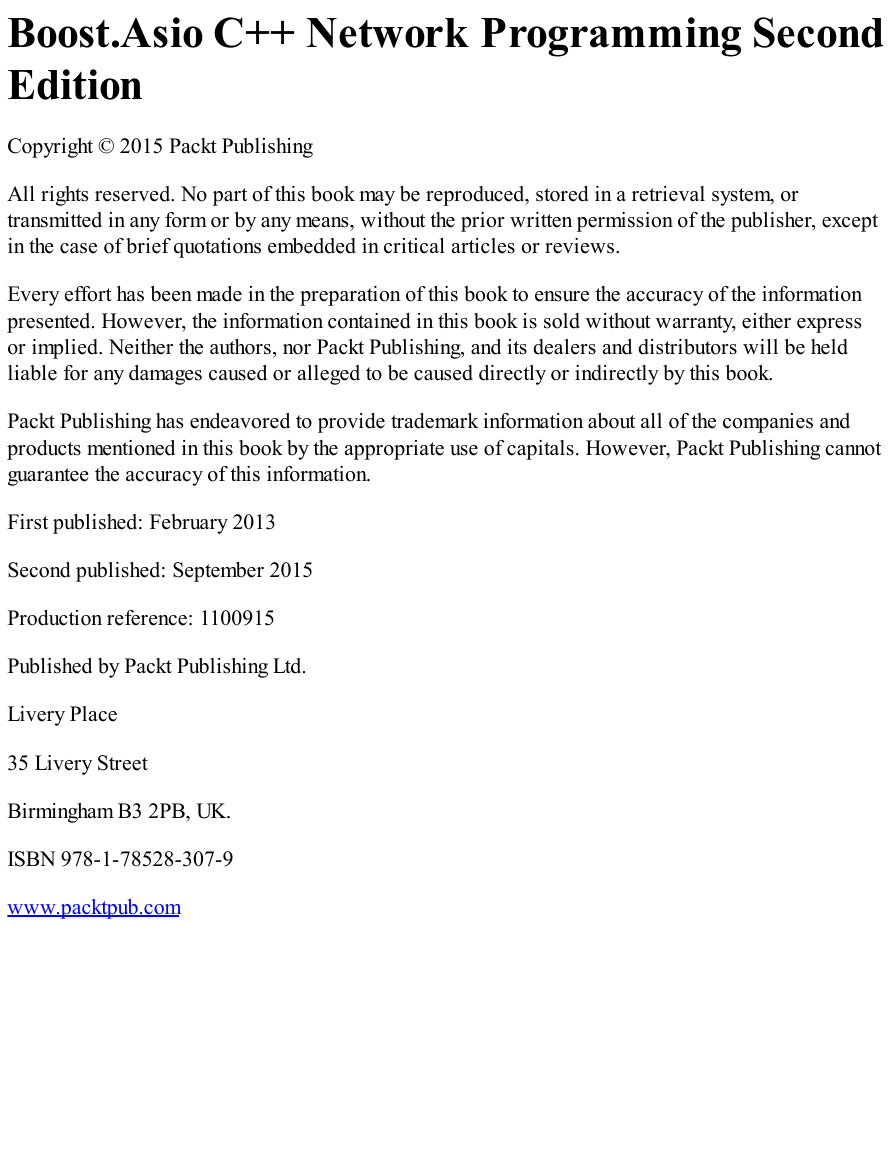








 2023年江西萍乡中考道德与法治真题及答案.doc
2023年江西萍乡中考道德与法治真题及答案.doc 2012年重庆南川中考生物真题及答案.doc
2012年重庆南川中考生物真题及答案.doc 2013年江西师范大学地理学综合及文艺理论基础考研真题.doc
2013年江西师范大学地理学综合及文艺理论基础考研真题.doc 2020年四川甘孜小升初语文真题及答案I卷.doc
2020年四川甘孜小升初语文真题及答案I卷.doc 2020年注册岩土工程师专业基础考试真题及答案.doc
2020年注册岩土工程师专业基础考试真题及答案.doc 2023-2024学年福建省厦门市九年级上学期数学月考试题及答案.doc
2023-2024学年福建省厦门市九年级上学期数学月考试题及答案.doc 2021-2022学年辽宁省沈阳市大东区九年级上学期语文期末试题及答案.doc
2021-2022学年辽宁省沈阳市大东区九年级上学期语文期末试题及答案.doc 2022-2023学年北京东城区初三第一学期物理期末试卷及答案.doc
2022-2023学年北京东城区初三第一学期物理期末试卷及答案.doc 2018上半年江西教师资格初中地理学科知识与教学能力真题及答案.doc
2018上半年江西教师资格初中地理学科知识与教学能力真题及答案.doc 2012年河北国家公务员申论考试真题及答案-省级.doc
2012年河北国家公务员申论考试真题及答案-省级.doc 2020-2021学年江苏省扬州市江都区邵樊片九年级上学期数学第一次质量检测试题及答案.doc
2020-2021学年江苏省扬州市江都区邵樊片九年级上学期数学第一次质量检测试题及答案.doc 2022下半年黑龙江教师资格证中学综合素质真题及答案.doc
2022下半年黑龙江教师资格证中学综合素质真题及答案.doc